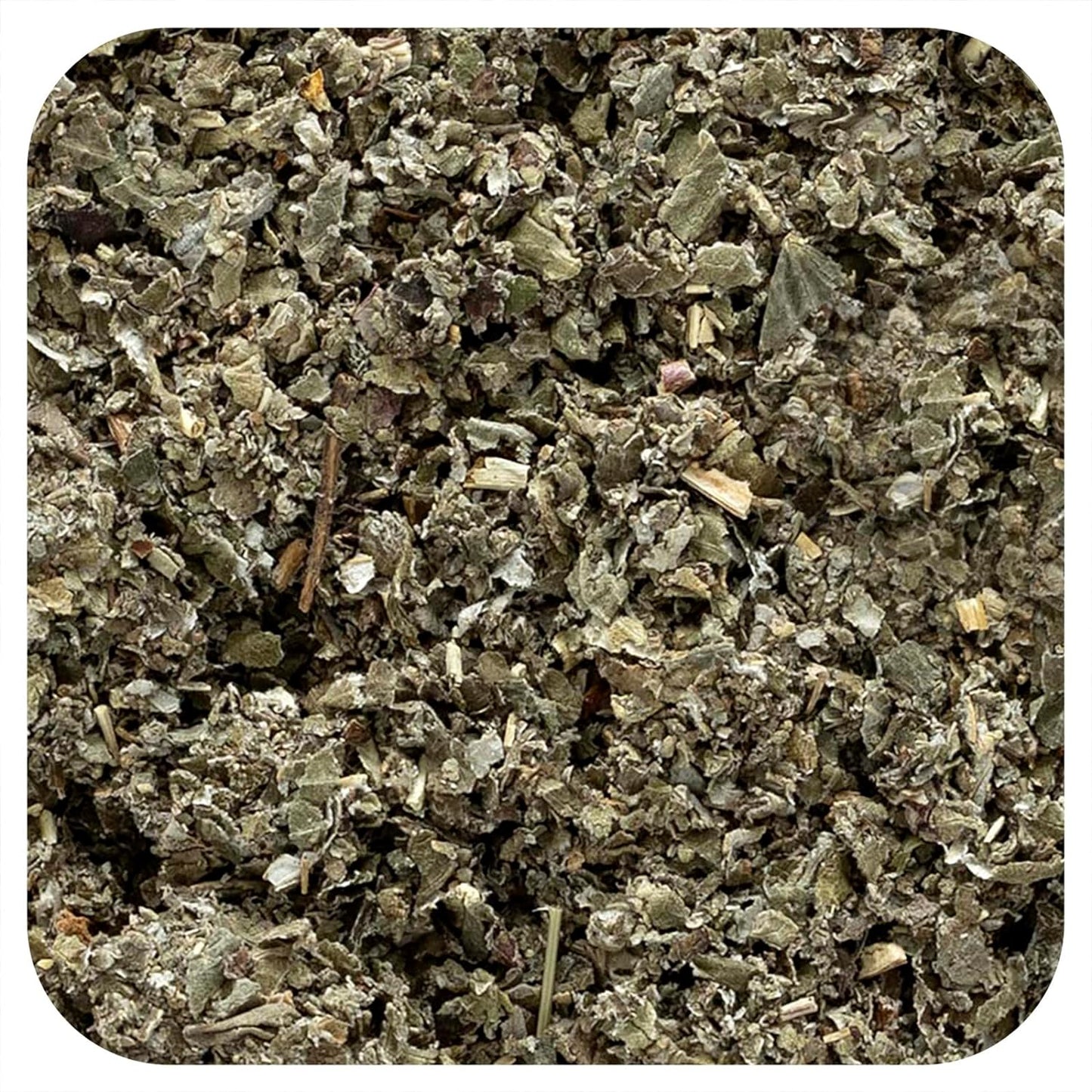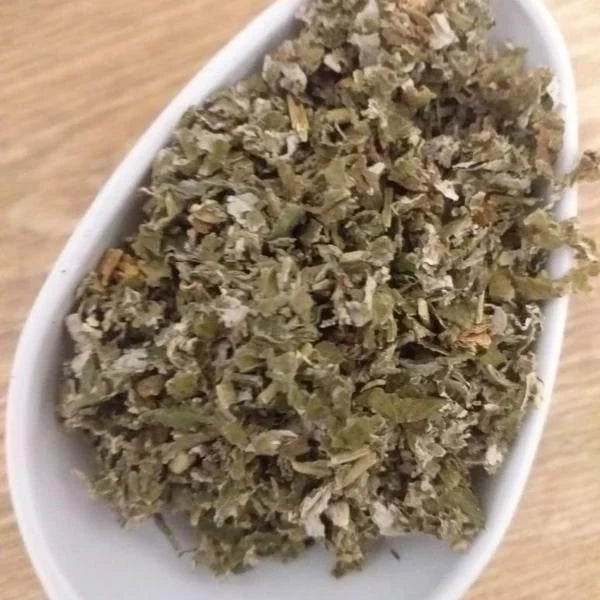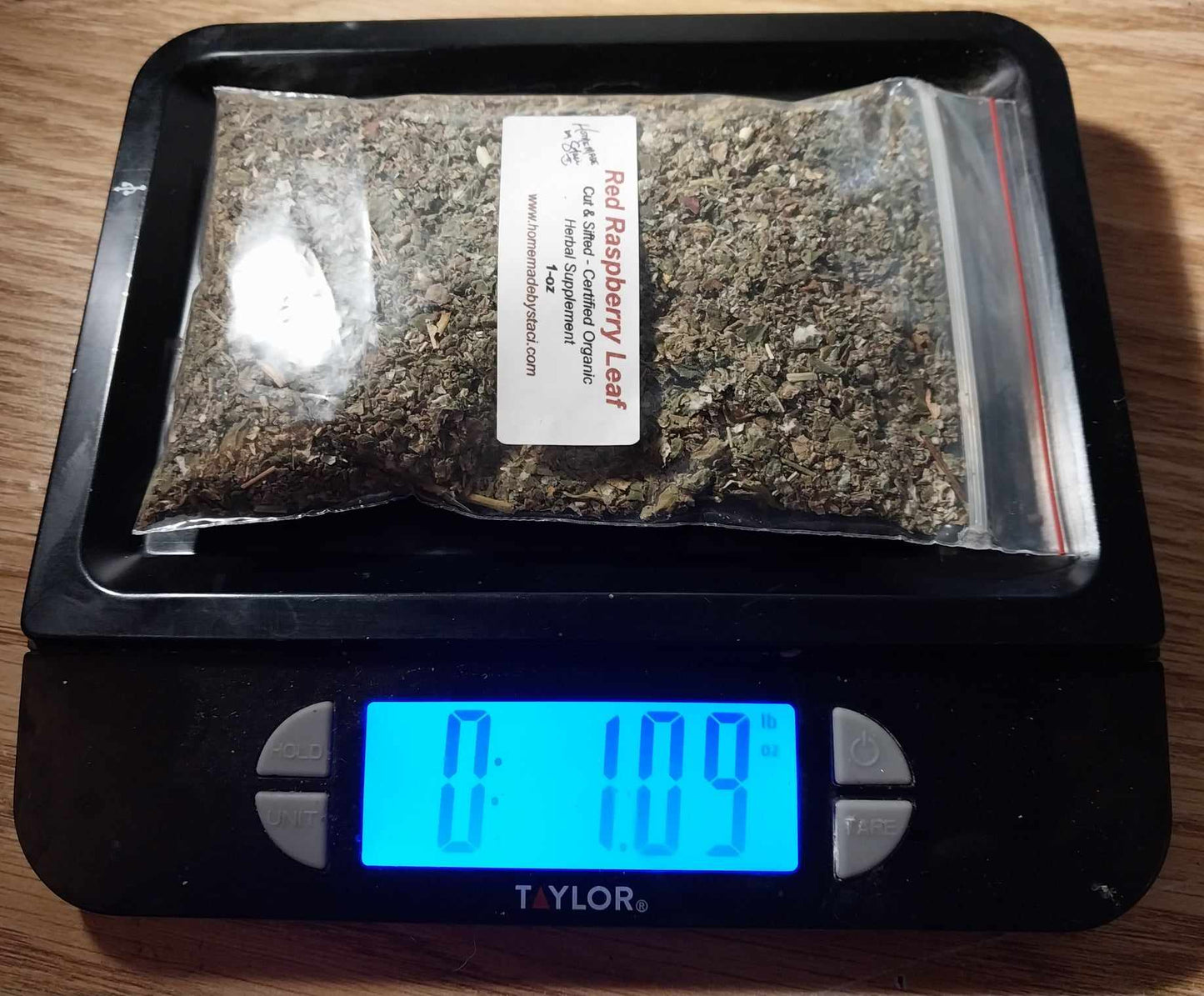Staci Inc
Organic Red Raspberry Leaf - Rubus idaeus L. - 1-oz
Organic Red Raspberry Leaf - Rubus idaeus L. - 1-oz
Couldn't load pickup availability
Red Raspberry Leaf is used to make flavorful, tangy tea and is often combined with other tea herbs to give the beverages a more robust flavor. Red raspberry leaves are also a popular ingredient in DIY herbal body care products. TOP QUALITY RASPBERRY RED LEAF - Red Raspberry Leaf (Rubus idaeus L.) is a pleasant-tasting, caffeine-free herb commonly used in teas and DIY herbal body care items and products. REFRESHING - Our non-irradiated, fresh raspberry leaves combine with other kinds of herbs to provide a flavorful boost to beverages. Raspberry carries tannins that contribute to the slightly-acidic note of this flavorful herb. FRUITY, EARTHY TASTE - Despite what the name would suggest, red raspberry leaves don’t taste like raspberry at all. Their flavor is more akin to a fruity, black tea that has a similar flavor to Earl Grey. Red raspberry leaves are sweeter and bolder than leaves used in other teas. SUSTAINABLY GROWN IN BULGARIA - Our Bulgarian farmers remove the young and vibrant leaves from the cane, wash and dry them thoroughly, and process them for a high-quality blend that provides superior flavor. These leaves are kosher certified and non-irradiated.
Suggested use - To prepare as a tea, pour 8 oz. boiling water over 1 tsp. of herb. Cover and steep 3-5 minutes, strain and serve immediately.
More Information about Red Raspberry Leaf
Red raspberry leaves are the leaves of the raspberry plant, scientifically known as Rubus idaeus. While the fruit of this plant is more well known for its tart berries, the leaves are also packed with antioxidants and other nutrients, making it a very important part of traditional medicine. For more than 400 years, natural healers have been using the leaves of this plant to aid women’s reproductive health, while also helping other systems in the body. Red raspberry leaves are relatively easy to find as herbal supplements in capsules and tablets, but many people prefer the dried leaves to brew red raspberry tea.
When it comes to the nutrition of red raspberry leaves, there are moderate levels of calcium, potassium, iron, manganese, and magnesium, as well as vitamins B, C, and E. There are also a number of ketones and antioxidants in these leaves that deliver various health benefits.
Benefits of Red Raspberry Leaves
The most notable benefits of these leaves include its effects on pregnancy, menstrual discomfort, implantation, blood pressure, fertility, reproductive health, and the immune system, among others.
Pregnancy
While drinking an excess amount of this tea during the first two trimesters is not always recommended, it can strengthen the uterine lining and help to ease labor pains, making it a popular choice as your due date approaches.
Menstrual Discomfort
There are anti-inflammatory and sedative properties of these leaves that help to decrease menstrual discomfort, as well as symptoms like mood swings and cramping.
Reproductive Health
Generally speaking, this tea is considered an overall reproductive health tonic, specifically for women. It can help to regulate hormones and even stimulate milk production if you are struggling with consistent breastfeeding.
Blood Pressure
With a small amount of potassium and other key minerals, these leaves are able to stabilize your blood pressure and reduce your risk of cardiovascular complications.
Fertility
By increasing circulation in the body and regulating reproductive hormonal health, consuming these supplements or drinking tea made from these leaves can increase fertility and sex drive.
Implantation
Studies have found that prior to pregnancy, consuming red raspberry leaves can increase the likelihood of implantation, and protect the early womb as your baby begins to develop.
Side Effects of Red Raspberry Leaves
While there are very important benefits, particularly for women, through the use of these leaves, there are also some side effects to consider, such as the following:
Gastrointestinal problems, laxative effects, stomach upset
Braxton Hicks contractions
Nausea
Stimulate menstruation
Higher risk of premature labor or miscarriage
Asthma
Drowsiness
Share






